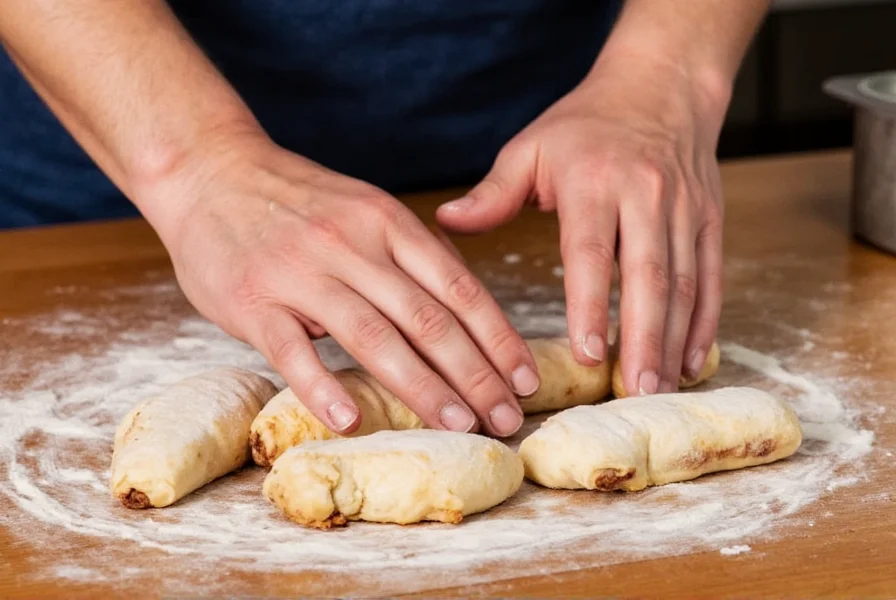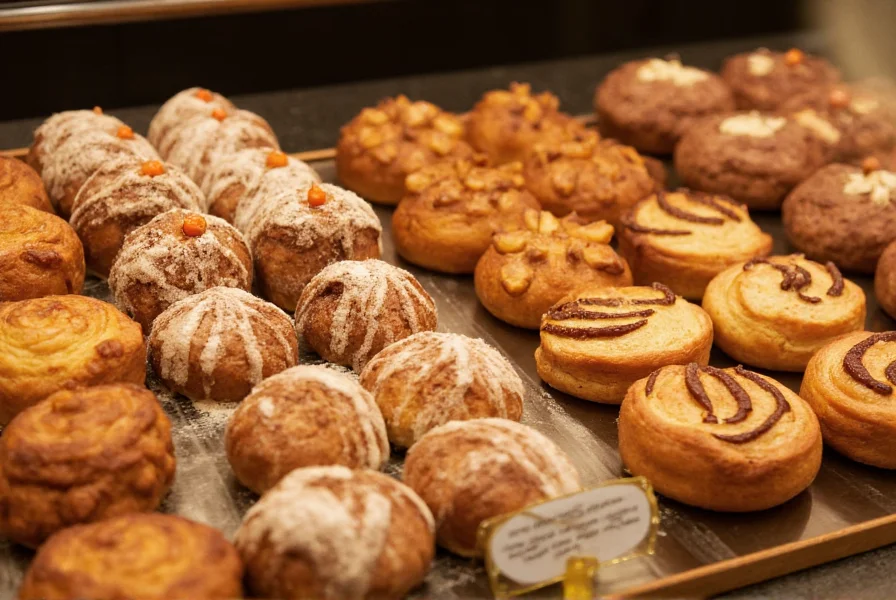When searching for the cinnamon barn, consumers generally seek authentic cinnamon-based products and experiences. These specialty food businesses have become popular destinations for those craving premium baked goods with a cinnamon focus. Understanding what defines a quality cinnamon-focused establishment helps consumers make informed choices about where to spend their money.
What Defines a True Cinnamon Specialty Business
Cinnamon specialty businesses distinguish themselves through several key characteristics that set them apart from standard bakeries. The most successful cinnamon barn bakery offerings feature:
- Use of premium Ceylon cinnamon rather than the more common Cassia variety
- Handcrafted preparation methods for cinnamon rolls and pastries
- Seasonal menu variations that highlight cinnamon's versatility
- Transparent ingredient sourcing information
- Knowledgeable staff who can discuss cinnamon varieties and uses
These elements contribute to what customers expect when searching for authentic cinnamon products near me. The best establishments create an immersive experience that celebrates cinnamon's rich history and culinary applications.
History of Cinnamon-Focused Establishments
Cinnamon has been prized for thousands of years, with historical records showing its value equaled to that of silver in ancient Rome. The modern cinnamon barn business model emerged in the late 20th century as consumers developed greater appreciation for specialty food experiences.
Early cinnamon-focused bakeries often began as small farm stands or seasonal markets before evolving into year-round operations. Many incorporated 'barn' into their names to evoke rustic, homemade qualities and agricultural connections—reflecting the farm-to-table movement that gained momentum in the 2000s.
| Cinnamon Variety | Flavor Profile | Common Usage |
|---|---|---|
| Ceylon ("True" Cinnamon) | Milder, sweeter, complex | High-end bakeries, specialty products |
| Cassia | Stronger, spicier, more intense | Commercial baking, lower-cost products |
What Customers Should Expect
When visiting establishments like the cinnamon barn, customers should anticipate specific experiences that justify the often higher price points compared to standard bakeries:
Quality cinnamon-focused businesses typically offer fresh-baked goods prepared daily, with many making their signature cinnamon rolls from scratch each morning. The aroma of baking cinnamon should be immediately noticeable upon entering. Staff members usually possess genuine knowledge about cinnamon varieties and preparation techniques.
Many successful operations provide transparency about their ingredients, including which type of cinnamon they use and where it's sourced. This information helps customers understand why their products might cost more than mass-produced alternatives. The history of cinnamon specialty stores shows that those emphasizing quality over quantity tend to develop loyal customer bases.
Evaluating Cinnamon Product Quality
Not all cinnamon products deliver the same quality experience. Consumers searching for cinnamon barn quality standards should consider these factors:
- Cinnamon type - Ceylon cinnamon offers a more delicate flavor preferred by specialty establishments
- Freshness - Ground cinnamon loses potency quickly; quality businesses often grind cinnamon in-house
- Ingredient ratios - Proper cinnamon-to-sugar balance distinguishes exceptional products
- Preparation method - Hand-rolled products typically have better texture than machine-processed
Understanding these quality markers helps consumers identify establishments worthy of the cinnamon specialty shop designation rather than those merely using cinnamon as a marketing gimmick.
Finding Reputable Cinnamon Establishments
With the growing popularity of cinnamon-focused businesses, consumers need reliable methods to identify authentic operations. Look for businesses that:
- Provide detailed information about their cinnamon sources
- Offer samples of different cinnamon varieties
- Maintain consistent quality across seasonal menu changes
- Have knowledgeable staff who can discuss cinnamon characteristics
- Demonstrate community involvement through local partnerships
These markers indicate a genuine commitment to cinnamon excellence rather than simply capitalizing on a popular food trend. The most established cinnamon artisan bakery practices often develop relationships with specific cinnamon growers to ensure consistent quality.

Seasonal Offerings and Specialties
Quality cinnamon businesses typically feature seasonal rotations that showcase cinnamon's versatility beyond standard cinnamon rolls. During fall and winter months, many offer:
- Cinnamon-infused apple pies and crisps
- Spiced cider with fresh cinnamon sticks
- Cinnamon-scented holiday cookies
- Specialty coffee drinks featuring house-made cinnamon syrup
These seasonal variations demonstrate culinary creativity while maintaining focus on cinnamon as the star ingredient. The best establishments develop signature items that become anticipated seasonal traditions for regular customers.

Conclusion: The Value of Specialized Cinnamon Businesses
Establishments like the cinnamon barn represent more than just places to buy baked goods—they preserve culinary traditions while innovating with a single, versatile ingredient. When properly executed, these specialty businesses create memorable food experiences centered around cinnamon's unique properties.
Consumers seeking authentic cinnamon artisan experiences should look beyond the name to evaluate ingredient quality, preparation methods, and staff knowledge. The most successful operations balance tradition with innovation, creating products that honor cinnamon's rich history while appealing to contemporary tastes.
What makes Ceylon cinnamon superior for baking?
Ceylon cinnamon (often called "true" cinnamon) has a more delicate, complex flavor profile with citrus notes compared to the stronger, spicier Cassia cinnamon commonly found in supermarkets. Its lower coumarin content makes it safer for regular consumption, and its nuanced flavor works better in delicate pastries where you want the cinnamon to complement rather than dominate other ingredients.
How can I tell if a cinnamon bakery uses quality ingredients?
Quality cinnamon bakeries typically provide information about their cinnamon source and variety. They'll often use Ceylon cinnamon rather than the more common Cassia. You can also assess quality by the aroma (fresh cinnamon has a distinctive sweet fragrance), texture of baked goods (properly made cinnamon rolls have distinct layers), and whether they grind cinnamon in-house rather than using pre-ground powder that loses potency.
Why do some cinnamon rolls cost significantly more than others?
Price differences typically reflect ingredient quality, preparation methods, and labor costs. Premium cinnamon rolls use higher butterfat content in dough, real vanilla rather than artificial flavoring, and quality cinnamon (Ceylon is more expensive than Cassia). Hand-rolling each roll takes significantly more time than machine processing. Businesses focusing on small-batch, fresh preparation also have higher operational costs than those baking in large quantities.
What should I look for in a quality cinnamon roll?
A quality cinnamon roll should have distinct, well-defined layers rather than a homogenous texture. The cinnamon-sugar mixture should be evenly distributed without burning. The dough should be soft and slightly chewy, not dense or dry. When properly made, you should taste both the sweet dough and the cinnamon spice in balance, with the cinnamon flavor lingering pleasantly after eating. The icing should complement rather than overwhelm the cinnamon flavor.
How has the cinnamon specialty business model evolved?
The model has evolved from simple seasonal stands to year-round specialty operations. Early cinnamon-focused businesses were often farm-based, selling primarily during harvest seasons. Modern establishments typically operate as dedicated bakeries with expanded menus that feature cinnamon as a consistent theme rather than a seasonal novelty. Many now offer mail-order services, baking classes, and product lines that extend beyond fresh baked goods to include cinnamon-infused products like syrups, spices, and gift items.










 浙公网安备
33010002000092号
浙公网安备
33010002000092号 浙B2-20120091-4
浙B2-20120091-4